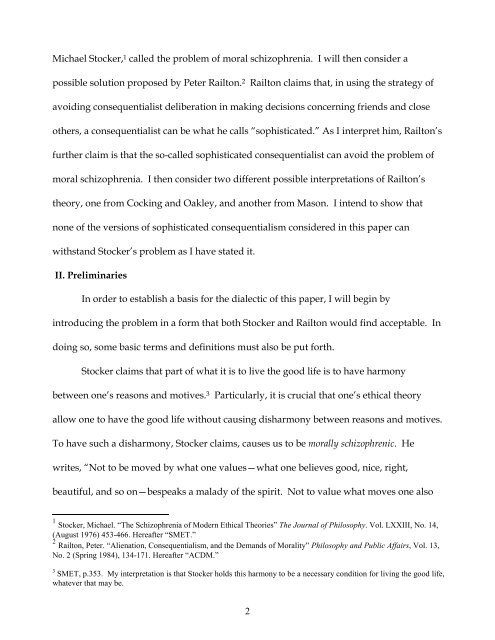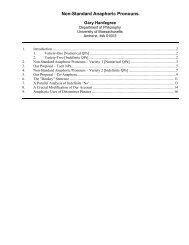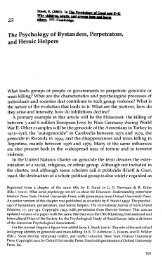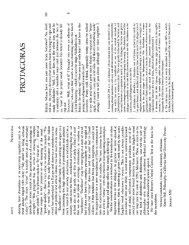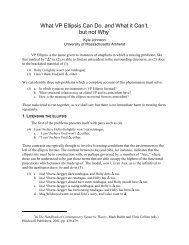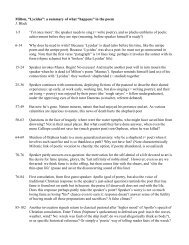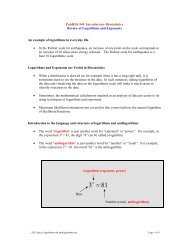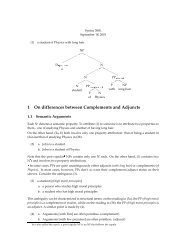1 Confessions of a Moral Schizophrenic* By Jayme Johnson I ...
1 Confessions of a Moral Schizophrenic* By Jayme Johnson I ...
1 Confessions of a Moral Schizophrenic* By Jayme Johnson I ...
Create successful ePaper yourself
Turn your PDF publications into a flip-book with our unique Google optimized e-Paper software.
Michael Stocker, 1 called the problem <strong>of</strong> moral schizophrenia. I will then consider a<br />
possible solution proposed by Peter Railton. 2 Railton claims that, in using the strategy <strong>of</strong><br />
avoiding consequentialist deliberation in making decisions concerning friends and close<br />
others, a consequentialist can be what he calls “sophisticated.” As I interpret him, Railton’s<br />
further claim is that the so-called sophisticated consequentialist can avoid the problem <strong>of</strong><br />
moral schizophrenia. I then consider two different possible interpretations <strong>of</strong> Railton’s<br />
theory, one from Cocking and Oakley, and another from Mason. I intend to show that<br />
none <strong>of</strong> the versions <strong>of</strong> sophisticated consequentialism considered in this paper can<br />
withstand Stocker’s problem as I have stated it.<br />
II. Preliminaries<br />
In order to establish a basis for the dialectic <strong>of</strong> this paper, I will begin by<br />
introducing the problem in a form that both Stocker and Railton would find acceptable. In<br />
doing so, some basic terms and definitions must also be put forth.<br />
Stocker claims that part <strong>of</strong> what it is to live the good life is to have harmony<br />
between one’s reasons and motives. 3 Particularly, it is crucial that one’s ethical theory<br />
allow one to have the good life without causing disharmony between reasons and motives.<br />
To have such a disharmony, Stocker claims, causes us to be morally schizophrenic. He<br />
writes, “Not to be moved by what one values—what one believes good, nice, right,<br />
beautiful, and so on—bespeaks a malady <strong>of</strong> the spirit. Not to value what moves one also<br />
1 Stocker, Michael. “The Schizophrenia <strong>of</strong> Modern Ethical Theories” The Journal <strong>of</strong> Philosophy. Vol. LXXIII, No. 14,<br />
(August 1976) 453-466. Hereafter “SMET.”<br />
2 Railton, Peter. “Alienation, Consequentialism, and the Demands <strong>of</strong> <strong>Moral</strong>ity” Philosophy and Public Affairs, Vol. 13,<br />
No. 2 (Spring 1984), 134-171. Hereafter “ACDM.”<br />
3 SMET, p.353. My interpretation is that Stocker holds this harmony to be a necessary condition for living the good life,<br />
whatever that may be.<br />
2


